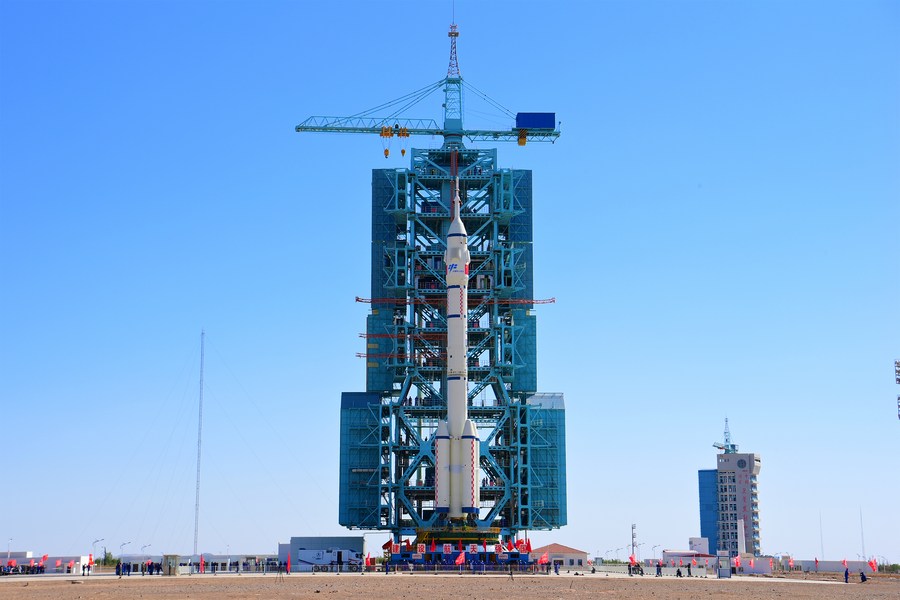China Focus: China's space station to serve scientific research as versatile lab China's Tiangong space station, designed to be a versatile space lab, is capable of accommodating 25 experiment cabinets for scientific exploration, announced the China Manned Space Agency on Saturday. "Each cabinet is a small-sized lab in space, capable of supporting single subject or interdisciplinary research in space science experiments," said Lin Xiqiang, deputy director of the agency, at a press conference. During the construction phase of the space station, nearly 100 experimental research projects have been planned, Lin said. China is set to launch the Shenzhou-14 crewed spacecraft on Sunday from the Jiuquan Satellite Launch Center, sending three astronauts to its space station combination for a six-month mission. The Shenzhou-14 mission marks the final phase of construction for the Tiangong space station. The Wentian lab module will be launched in July, and the Mengtian lab module will be launched in October. According to Lin, the experiment cabinets installed on Wentian can support experiments on life and ecology, biotechnology, and varying-gravity science research. They can also be used in the response mechanism research on the growth, development, heredity and aging of plants, animals and microorganisms, as well as the research on closed ecosystems. Astronauts can conduct multi-level biological experiments on molecules, cells, tissues and organs in Wentian by using diverse online detection methods, such as by visible light, fluorescence or microscopic imaging. Wentian can also provide a variable gravity simulation environment to support the comparative study of the biological growth mechanism in different gravity conditions. The Mengtian lab module will mainly support microgravity research, with experiment cabinets for the study of physics of fluids, material science, combustion science and basic physics. It also has cabinets for space technology experiments, Lin said. Meanwhile, a space-based cold atomic clock system will be established in Mengtian. Consisting of a hydrogen clock, a rubidium clock and an optical clock, the cold atomic clocks will form the most precise time and frequency system in space. It will serve the gravitational redshift research, measurement of fine structure constants, and other applications. After the space station is put into normal operation, large-scale scientific research will also be carried out to promote breakthroughs in major cutting-edge scientific fields, such as the dark matter and dark energy, galaxy formation and evolution, nature of materials and life, variation law of human's response in space, as well as the sustainable development of Earth, Lin said. They are expected to accumulate profound sci-tech experience for China to carry out further manned space exploration, he added. (Xinhua) |
